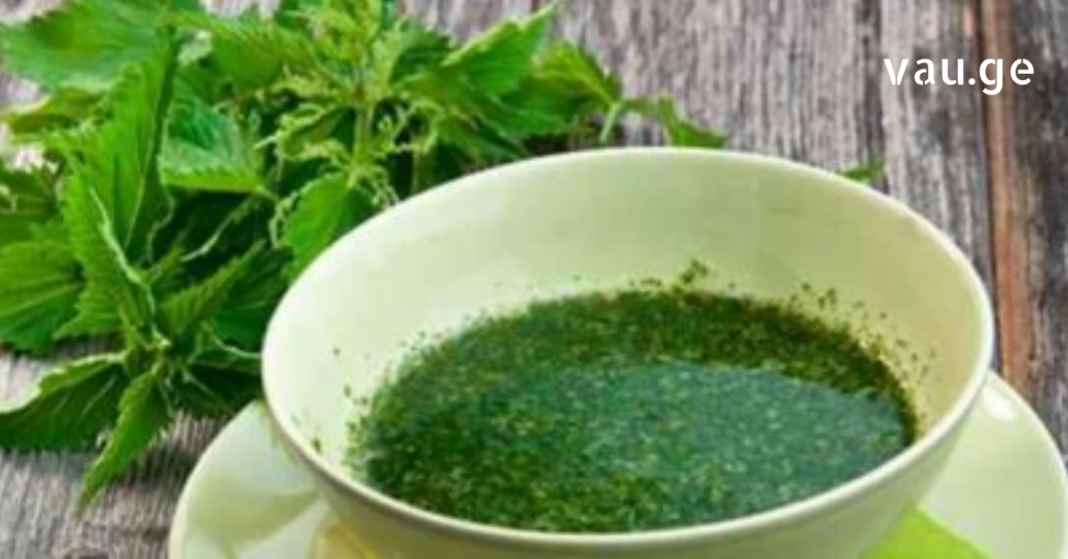Nettle (Urtica dioica), a plant often overlooked or even avoided because of its sting, has been used in traditional medicine for centuries. But did you know it could be one of the most powerful natural remedies you can find in your backyard? Rich in nutrients, antioxidants, and healing properties, nettle is truly a super-plant — and you might want to start keeping it in your home.
Let’s explore what makes nettle so beneficial and why it’s recommended for the prevention and treatment of a wide range of health issues.
Nettle Helps Treat and Prevent the Following Conditions:
- Anemia – Thanks to its high iron content, nettle helps combat iron-deficiency anemia.
- Hemorrhoids – Its anti-inflammatory properties can provide relief.
- Internal Bleeding – Nettle has traditionally been used to stop bleeding from the uterus, digestive tract, lungs, kidneys, liver, and nose.
- Joint Disorders – It’s beneficial for those suffering from arthritis and other joint problems.
- Wounds and Burns – Nettle has antibacterial properties that aid in healing.
- Skin Infections – It can help clear up conditions like eczema and acne.
- Digestive Disorders – Nettle is recommended for colitis, constipation, liver anomalies, gallbladder diseases, and other gastrointestinal issues.
- Diabetes – It helps regulate blood sugar levels naturally.
- Bronchitis – Its expectorant effect assists in clearing mucus from the lungs.
- Menstrual Irregularities – It can help regulate cycles and reduce heavy bleeding.
- Edema (Water Retention) – Its diuretic properties help reduce swelling.
- Uterine Involution – Assists with postpartum recovery of the uterus.
- Mouth and Throat Conditions – Gargling with nettle tea can reduce inflammation of gums and throat.
Packed With Nutrients
Did you know that nettle contains six times more calcium than cow’s milk and seven times more vitamin C than an orange? That alone makes it a plant worth incorporating into your routine.
Here’s a look at the nutritional profile per 100 grams of nettle:
- Calories: 42 kcal
- Fat: 0.6 g
- Carbohydrates: 1.3 g
- Protein: 7.3 g
These numbers highlight nettle’s status as a nutrient-dense food that supports muscle, bone, and immune system health.
A History of Healing
Even the famous medieval physician Avicenna used nettle to stop bleeding. That’s because nettle contains vitamin K, which is essential for blood clotting — it stimulates the liver to produce prothrombin, a key clotting factor.
Folk medicine also recommends nettle for general fatigue and weakness caused by iron deficiency. Remarkably, nettle provides almost four times more iron than a steak and three times more than spinach!
Natural Detoxifier
Nettle is a powerful cleanser. It detoxifies the body, supports liver and gallbladder function, and improves digestion. The Swiss physician Paracelsus used nettle juice to treat patients with hepatitis, highlighting its restorative effects on the liver.
It’s also beneficial for the pancreas, helping regulate blood sugar levels and improving the function of both the nervous and endocrine systems.
Beauty and Skin Benefits
Nettle tea is an excellent internal cleanser, especially when your skin is experiencing inflammation — such as in the case of acne. It helps reduce allergic rashes and is often used for treating eczema.
Nettle also works against oxidative stress. Its antioxidant properties protect cells from damage caused by free radicals, support metabolic functions, and slow down the aging process.
Urinary Tract and Bladder Support
Nettle is a natural diuretic, meaning it increases urine output. Drinking strong nettle tea can help flush out bacteria during urinary tract infections and relieve irritation in the bladder. The more concentrated the tea, the more effectively it works.
It also helps prevent the formation of kidney and bladder stones. Nettle stops mineral salts in the urine from crystallizing — a process that usually leads to stone formation.
Natural Pain Relief
Did you know that applying fresh nettle leaves directly to sore muscles or joints can relieve pain? It may sound strange, but gently slapping or rubbing fresh nettle on the affected area increases blood circulation, relaxes muscles, and eases discomfort.


















